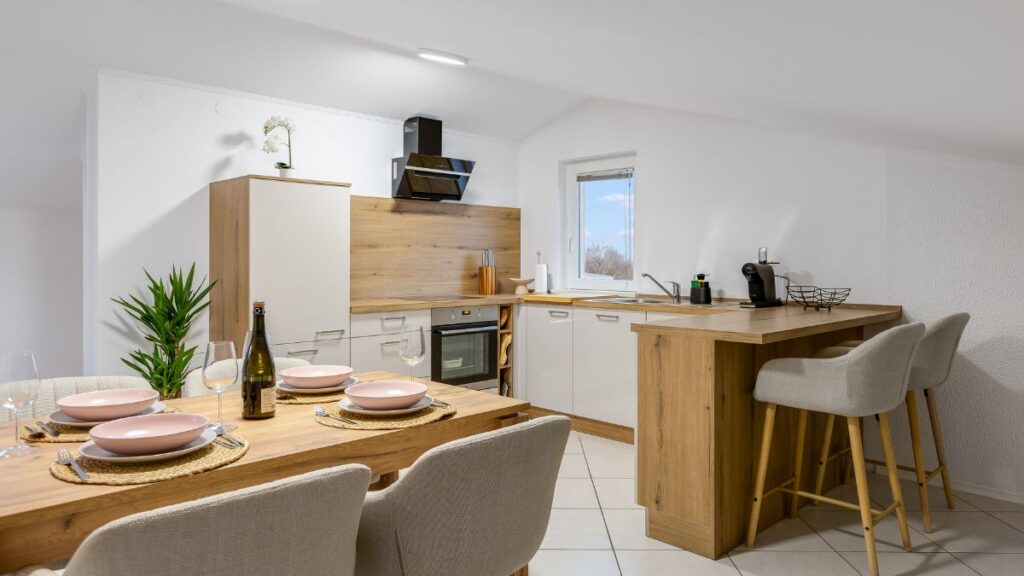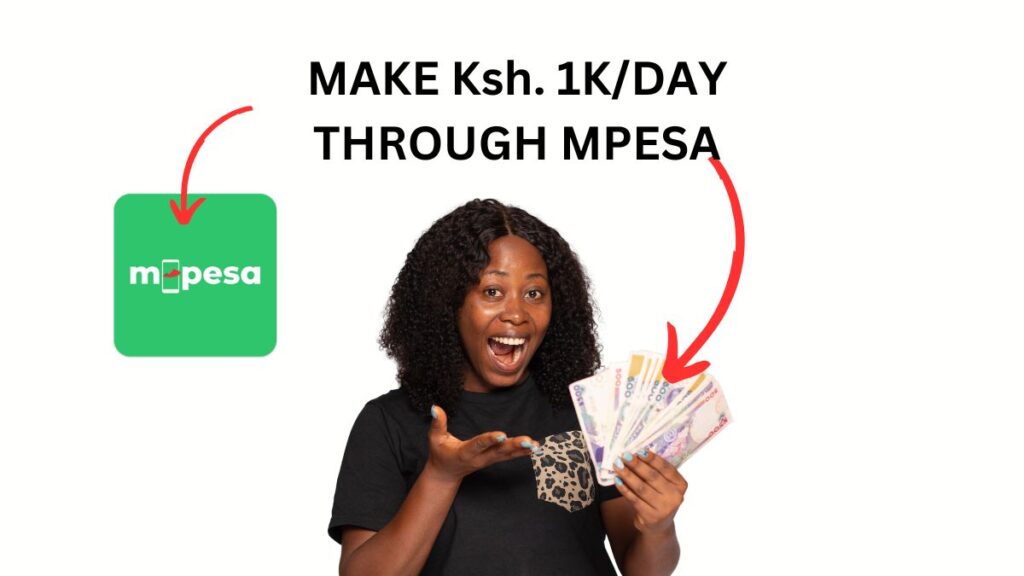The Airbnb platform has transformed the way people travel and host, offering a unique opportunity for Kenyans to earn money by renting out their properties or even managing listings without owning a space.
With Kenya’s vibrant tourism industry, rich cultural heritage, and growing demand for unique accommodations, starting an Airbnb business can be a lucrative venture.
Whether you own a property or not, this guide will walk you through everything you need to know to make money on Airbnb in Kenya as of April 10, 2025.
Why Airbnb in Kenya?
Kenya is a global hotspot for tourism, boasting attractions like the Maasai Mara, coastal beaches in Diani and Mombasa, and bustling urban centers like Nairobi.
The rise of the sharing economy has made Airbnb increasingly popular among both international visitors and local travelers seeking affordable, authentic stays.
This growing demand creates a golden opportunity for hosts to capitalize on short-term rentals.
From cozy apartments in Kilimani to beachfront villas in Watamu, Airbnb offers flexibility and income potential that traditional rentals or hotels can’t always match.
Step 1: Understand the Legal Requirements
Before you start Airbnb business, ensure you’re compliant with Kenyan regulations. Here’s what you need to do:
- Register with the Kenya Tourism Regulatory Authority (KTRA): All accommodation providers, including Airbnb hosts, must register with the KTRA. First-time applicants pay a one-time fee of KES 1,000, plus an annual license fee (e.g., KES 26,000 for a serviced apartment).
- Obtain a Business Permit: Secure a county government business permit, which typically costs around KES 10,000 annually, though fees vary by county.
- Insurance: Ensure your property has adequate coverage, such as liability insurance and damage protection. Airbnb offers AirCover, but reviewing your homeowner’s or renter’s policy is wise.
- Tax Obligations: Income from Airbnb is taxable. You’ll need to pay rental income tax (10% on gross rent for earnings between KES 288,000 and KES 15 million annually) and potentially Value Added Tax (VAT) if your earnings exceed KES 5 million in 12 months.
If you’re renting rather than owning, confirm with your landlord or homeowners’ association that subletting for short-term rentals is allowed.
Read also: How Recruitment Agencies Make Money in Kenya
Step 2: Choose Your Airbnb Model
You don’t need to own property to profit from Airbnb. Here are the main ways to make money:
Hosting Your Own Property
- What It Involves: Rent out a spare room, an entire home, or a unique space (e.g., a cabin or treehouse) you own.
- Pros: Full control over pricing and availability, plus higher profit margins.
- Cons: Requires property ownership and ongoing maintenance.
Rental Arbitrage
- What It Involves: Lease a property long-term, furnish it, and list it on Airbnb at a higher nightly rate.
- Example: Rent a two-bedroom apartment in Nairobi for KES 50,000 monthly, then charge KES 5,000 per night. At 15 bookings a month, you’d earn KES 75,000, netting a profit after rent.
- Pros: No need to buy property; scalable with multiple listings.
- Cons: Requires landlord approval and careful financial planning to ensure profitability.
Co-Hosting or Property Management
- What It Involves: Manage someone else’s Airbnb listing—handling bookings, guest communication, and cleaning—for a fee (typically 10-20% of rental income).
- Pros: No property ownership needed; leverages your organizational skills.
- Cons: Income depends on the host’s bookings and property quality.
Offering Experiences
- What It Involves: Host unique activities like guided tours, cooking classes, or cultural workshops on Airbnb Experiences.
- Pros: No property required; showcases your expertise or local knowledge.
- Cons: Requires time and marketing to attract guests.
Step 3: Set Up Your Listing
A standout listing is key to attracting guests. Follow these steps:
- Choose a Prime Location: Focus on high-demand areas like Nairobi (Kilimani, Westlands), Mombasa, Diani, or Naivasha, especially during peak seasons like the Safari Rally or coastal holidays.
- Prepare the Space: Make it guest-ready with clean, functional furnishings, essential amenities (Wi-Fi, hot water, bedding), and a unique touch (e.g., local artwork).
- Take High-Quality Photos: Use good lighting and a decent camera (or hire a professional) to showcase your property. Airbnb recommends a 3:2 aspect ratio (1024 x 683px minimum).
- Write a Detailed Description: Highlight what makes your space special—proximity to attractions, security, or unique features—and include local experiences guests can enjoy.
Step 4: Set Competitive Pricing
Pricing is a balancing act between profitability and occupancy. Here’s how to nail it:
- Research the Market: Check similar listings in your area on Airbnb to gauge average rates. In Nairobi, a well-located apartment might fetch KES 3,000–15,000 per night.
- Use Airbnb’s Tools: Airbnb’s dynamic pricing tool adjusts rates based on demand, seasonality, and local events.
- Offer Discounts: Encourage longer stays (e.g., 28+ days for remote workers) with discounted rates to ensure steady income.
- Add Fees: Charge extra for premium services like airport pickups or guided tours.
Step 5: Maximize Earnings
To boost your income, consider these strategies:
- Ensure High Occupancy: Keep your calendar updated and lower minimum-night stays during off-peak seasons.
- Get Great Reviews: Provide exceptional service—greet guests personally, respond quickly, and offer local tips—to earn 5-star ratings, which attract more bookings.
- Upsell Services: Offer add-ons like meal services, equipment rentals (bikes, cameras), or currency exchange for international guests.
- Market Aggressively: Promote your listing on social media (Instagram, TikTok) or create a simple website to drive direct interest.
Read also: How to Start a Barbershop Business in Kenya (and Actually Make Money)
How Much Can You Make from Airbnb Business in Kenya?
Earnings vary widely based on location, property type, and occupancy. Here’s a snapshot:
- Nairobi Apartment: KES 50,000–150,000 monthly with 60% occupancy at KES 5,000/night.
- Coastal Villa: Up to KES 250,000+ monthly during peak tourist seasons.
- Co-Hosting: KES 10,000–30,000 per property monthly, depending on the rental income.
- Experiences: KES 2,000–10,000 per session, based on group size and activity.
Profit margins can reach 40% if managed efficiently, though costs like cleaning, utilities, and Airbnb’s 3% host fee should be factored in.
Challenges and Solutions
Running an Airbnb in Kenya isn’t without hurdles. Here’s how to tackle them:
- Seasonal Fluctuations: Target business travelers or locals during low tourist seasons with special rates.
- Guest Issues: Screen guests via Airbnb’s messaging system and set clear house rules to avoid damages or misuse.
- Competition: Stand out with unique offerings (e.g., a themed space) and stellar customer service.
Final Tips for Success
- Start Small: Test the waters with one listing before scaling up.
- Stay Compliant: Keep up with tax filings and renew licenses annually.
- Invest in Guest Experience: A clean, welcoming space with personal touches turns one-time guests into repeat bookers.
Conclusion
Making money on Airbnb in Kenya is a viable and flexible opportunity, whether you’re a property owner, a renter, or a service provider. With the right location, a well-managed listing, and a focus on guest satisfaction, you can tap into Kenya’s booming tourism market. Start today by registering on Airbnb, securing your permits, and crafting a listing that showcases the best of what you offer. The potential for passive income—or even a full-time gig—awaits!
Read also:


